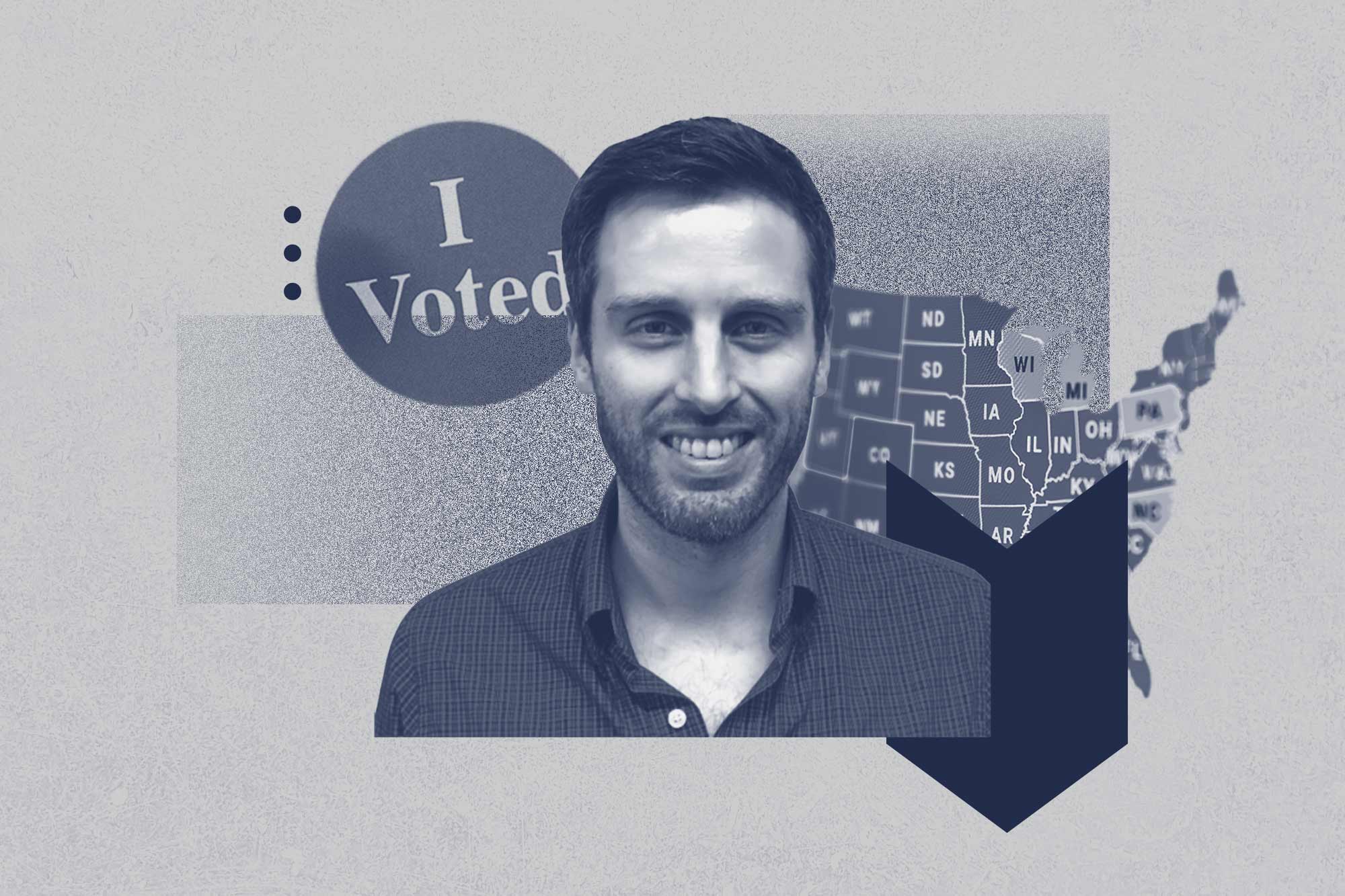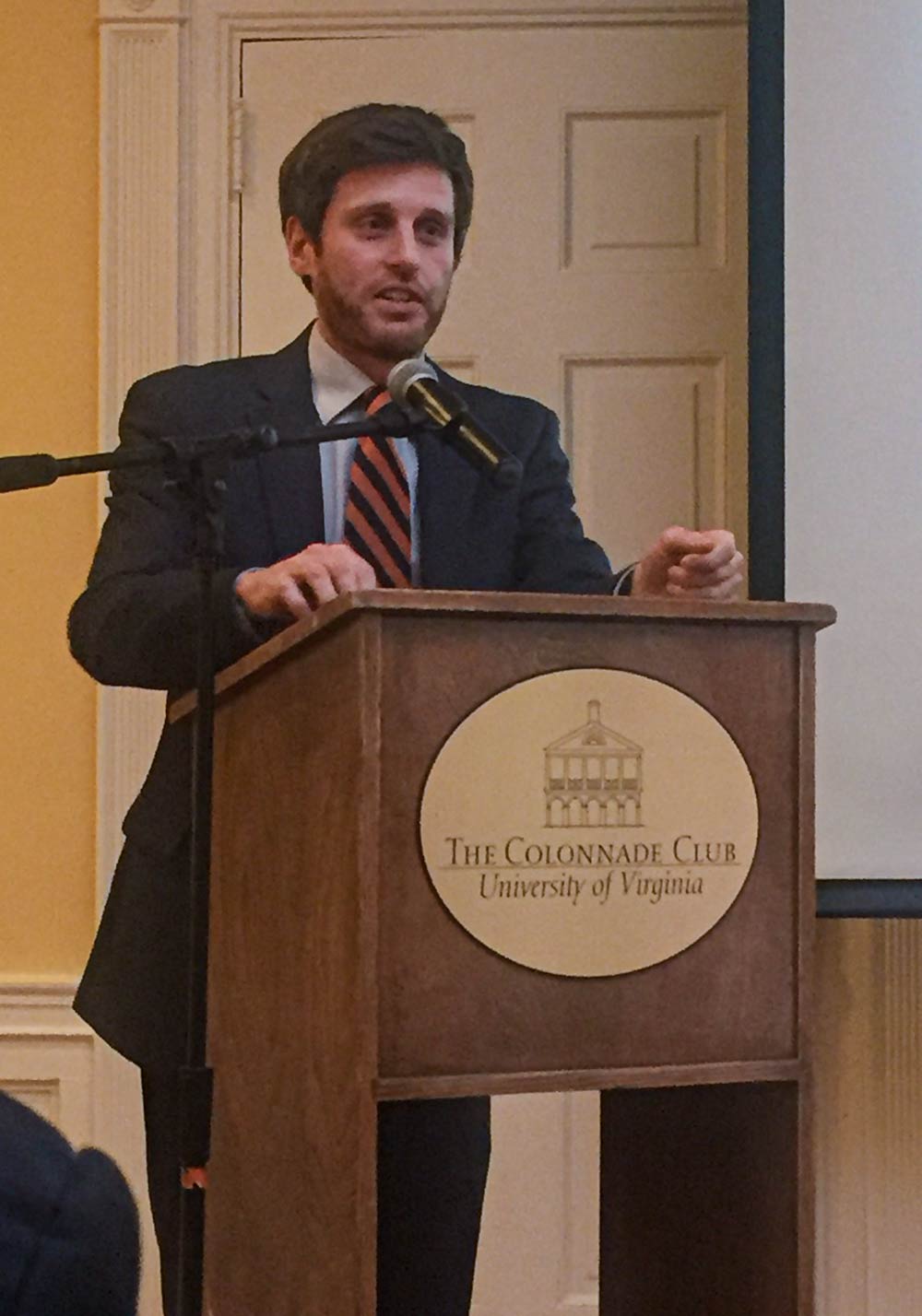“But after results became clear that Biden was going to win, there were still a bunch of House elections,” Skelley said. “It seemed interminable at times.”
Skelley, a Harrisonburg native, is the son of a political science professor at James Madison University. He remembers his teenage self hanging out with his parents as the all-important recount in Florida was brewing.
“What drew me into politics was probably the 2000 election,” he said. “I was up to 2 or 3 that night.”
During his time as a UVA student, the history major interned at the UVA Center for Politics. He returned to that office a few years later as the media relations coordinator and associate editor of Larry Sabato’s Crystal Ball, a comprehensive, nonpartisan political analysis and handicapping newsletter.
“I really took to that job,” Skelley said. “I quickly was like, ‘Oh, I really, really like doing this. I knew I was going to like doing this, but man, do I really like doing this.’”
The experience, he said, was invaluable. “I really grew a ton.”
With all the deep number crunching that goes along with election analysis, attention to detail is an important trait to possess. That’s what Skelley developed over his seven years at the Center for Politics, Crystal Ball managing editor Kyle Kondik said.
Skelley’s work in compiling the history of U.S Senate elections is something that remains a valuable research tool at the Center for Politics.
“He had to go through a lot of stuff to figure that out,” Kondik said. “In order to make a complete history of things, you have to be cognizant of not what you have, but what you don’t have. So making sure you’re taking note of all the special elections and the various appointments to the Senate and all those sorts of things and checking the records, making sure that you’ve got everything.
“And sometimes what you’ll find is the more you learn about something, the more research you actually have to do, because you’re cognizant of all the intricacies of the data that you’re working with. And I just felt Geoff really grew in that over the course of working with us, and I’m sure that has served him well in his current job.”
Politics professor Larry Sabato, the director of the Center for Politics whom Skelley views as a mentor, said Skelley has a bright future in the business.
“We’re very proud of Geoff and his stellar career in political analysis – and he has many decades left to reach even greater heights,” Sabato said.
The Center for Politics archives are filled with Skelley’s work on presidential, senatorial and gubernatorial elections, Sabato said. His work was so comprehensive and accurate that his tables and graphs are still in use today.
“As both a student and employee here, Geoff brought a zest for politics and an inquiring mind that yielded new insights on many strange and wonderful facets of politics,” Sabato said.
Writing about politics in 2022, in a splintered country, isn’t easy. Skelley, whose platform includes more than 27,000 Twitter followers, is well aware of the potential blowback that comes with each tweet or article.
But that’s not to say he feels a ton of pressure.
“I am mindful that anything I write could garner a lot of negative attention if I’m not careful how I present it,” he said. “I’m just trying to write in a way that is trying to help people understand what is driving this intensity.
“It’s tough, but it really helps that I enjoy what I do. I’m very lucky. I’m doing something that I enjoy doing and that makes it a little easier.”
Sleepless nights and all.











